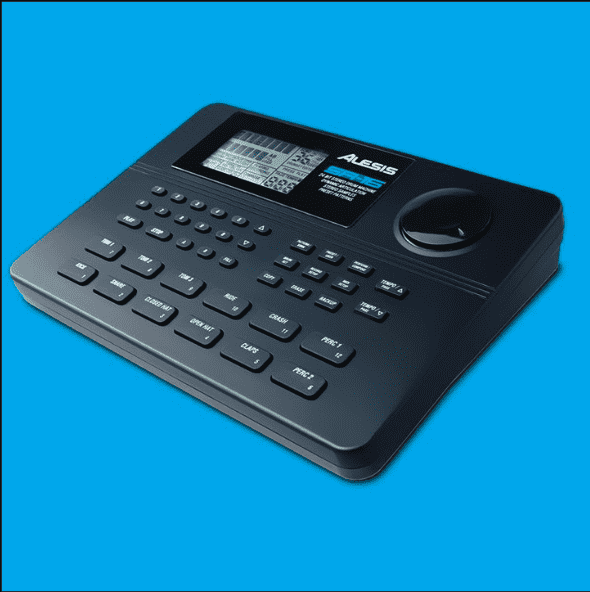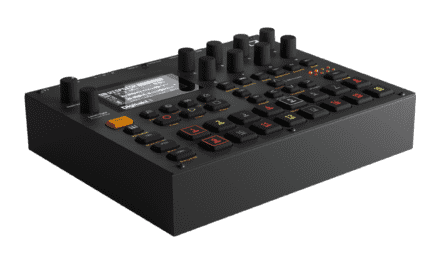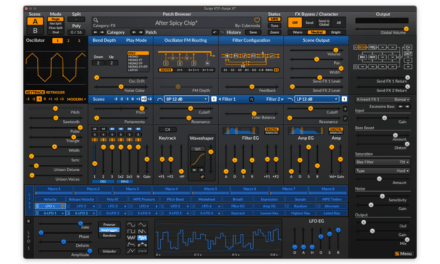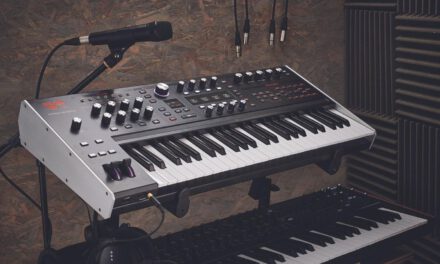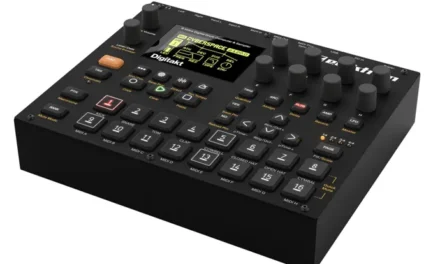The Alesis SR-16 is a classic drum machine that has been a favorite among musicians for over three decades. Known for its simplicity, affordability, and timeless sound, the SR-16 is a great tool for beginners and seasoned musicians alike. If you’ve just picked up an SR-16 and are wondering how to get started, this tutorial will guide you through the basics. By the end, you’ll be creating beats, programming patterns, and making music with confidence.
Step 1: Getting Started
- Power Up: Plug in the SR-16 using the included power adapter or batteries. Turn it on using the power switch on the back.
- Familiarize Yourself with the Interface: The SR-16 has 12 velocity-sensitive pads, a backlit LCD screen, and a series of buttons for navigation and control. Take a moment to explore the layout.
Step 2: Playing Sounds
- Select a Sound: Press the INSTRUMENT button, then tap one of the pads to select a drum sound (e.g., kick, snare, hi-hat). The selected sound will be displayed on the screen.
- Play the Pads: Tap the pads to trigger the selected sound. The pads are velocity-sensitive, so hitting them harder or softer will change the volume and dynamics of the sound.
Step 3: Creating a Beat in Real Time
- Enter Record Mode: Press the RECORD button. The metronome will start, and the SR-16 will begin counting you in.
- Play Your Beat: Tap the pads to record your beat in real time. You can layer multiple sounds by tapping different pads.
- Stop Recording: Press STOP when you’re finished. Your beat will now be saved as a pattern.
Step 4: Programming a Beat in Step Mode
- Enter Step Mode: Press RECORD, then press FILL to switch to step recording mode.
- Select a Sound: Press the INSTRUMENT button and choose a sound to program (e.g., kick drum).
- Add Steps: Use the pads to program each step of the pattern. Each pad corresponds to a step in the sequence (1-16 by default).
- Repeat for Other Sounds: Program additional sounds (e.g., snare, hi-hat) to build a full drum pattern.
Step 5: Using Preset Patterns
- Select a Preset Pattern: Press the PATTERN button, then use the VALUE knob to browse through the 50 preset patterns.
- Play the Pattern: Press PLAY to hear the selected pattern. You can adjust the tempo using the TEMPO knob.
- Chain Patterns: Press CHAIN to link multiple patterns together and create a full song.
Step 6: Editing Sounds
- Adjust Volume and Panning: Press EDIT, then use the VALUE knob to adjust the volume or panning of the selected sound.
- Layer Sounds: Press EDIT, then select a second sound to layer with the first. This allows you to create unique drum combinations.
- Add Effects: Use the REVERB and ACCENT buttons to add effects to your sounds.

Step 7: Saving Your Work
- Save Your Pattern: Press WRITE, then use the VALUE knob to select a user pattern slot (1-50). Press WRITE again to save your pattern.
- Save Your Kit: Press WRITE, then select a kit slot to save your current sound settings.
Step 8: Using the SR-16 in a Live Setting
- Trigger Fills: Press the FILL button during playback to automatically generate drum fills based on your selected pattern.
- Mute Tracks: Press MUTE, then tap a pad to mute or unmute a sound during playback.
- Adjust Tempo: Use the TEMPO knob to change the speed of your pattern in real time.
Tips for Success
- Experiment with Layering: Combine different sounds to create unique drum textures.
- Use the Metronome: The built-in metronome is a great tool for staying in time while recording.
- Explore the Presets: The SR-16’s preset patterns are a great starting point for inspiration.
- Read the Manual: The SR-16’s manual is straightforward and packed with useful information.
Final Thoughts
The Alesis SR-16 is a timeless drum machine that’s perfect for beginners and hobbyists. Its simplicity and ease of use make it a great tool for creating beats, programming patterns, and performing live. While it may not have the advanced features of modern drum machines, its affordability and reliability ensure it remains a favorite among musicians.
So power up your SR-16, start tapping those pads, and let the rhythm take over. Happy beat-making! 🎶


